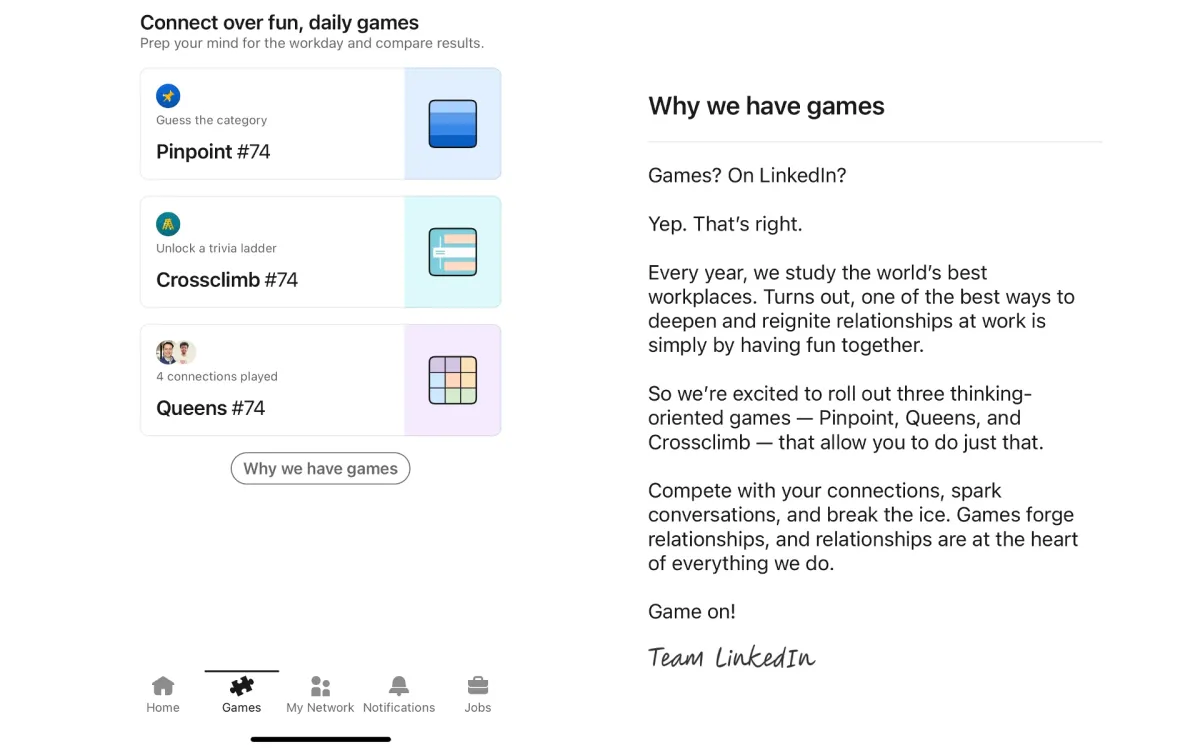
In a surprising move, LinkedIn, the world's largest professional networking platform with over 830 million users, confirmed the rollout of casual games this year. This integration of gaming features into a platform traditionally focused on professional development and career management has sparked discussions about its potential impact.
LinkedIn's official stance, as outlined in Why we have games, emphasizes the social and cognitive benefits of gaming. The explanation highlights studies on the positive effects of games on workplace relationships and proposes that the new features can "spark conversations" and "forge relationships" among users.
The platform offers three thinking-oriented games at the time of writing: Pinpoint (word association), Crossclimb (trivia with a word ladder twist), and Queens (logic puzzle). According to LinkedIn, new puzzles are released daily to keep users engaged.
While some users welcome the addition of games as a lighthearted break and a potential conversation starter, others raise concerns. Critics point out that gamification can introduce unwanted pressure and a "fear of missing out" (FOMO) mentality into the professional networking landscape.
The introduction of leaderboards that rank companies and schools based on average game scores is a particular point of contention. Some users worry that these leaderboards might overshadow professional achievements and create a stressful atmosphere of competition.
A Look at the Gamification Trend
LinkedIn isn't the first platform to embrace gamification. Many social media platforms and educational tools have incorporated game mechanics – points, badges, and leaderboards – to boost engagement and user retention. While gamification can be effective in driving initial engagement, its long-term impact on user behavior and overall platform value requires careful evaluation.
The success of LinkedIn's gaming feature will likely hinge on its ability to integrate seamlessly with the platform's core purpose – professional networking.
Here are some potential areas for development:
- Focus on Collaboration: Future games could emphasize teamwork and collaboration over individual competition. This could involve team-based challenges or cooperative puzzles that encourage users to work together.
- Meaningful Rewards: Instead of focusing solely on leaderboards, LinkedIn could introduce rewards that align better with professional development goals, such as exclusive content, access to networking events, or skill-building resources.
- Transparency and User Control: Clear and transparent communication about data collection practices associated with games can help alleviate privacy concerns. Additionally, providing users with granular control over their game activity and data sharing can foster a sense of trust and encourage participation.
The introduction of games on LinkedIn represents a significant shift for a platform known for its professional focus. While the long-term impact of this move remains to be seen, it's undeniable that it has sparked a conversation about the evolving landscape of professional networking.

